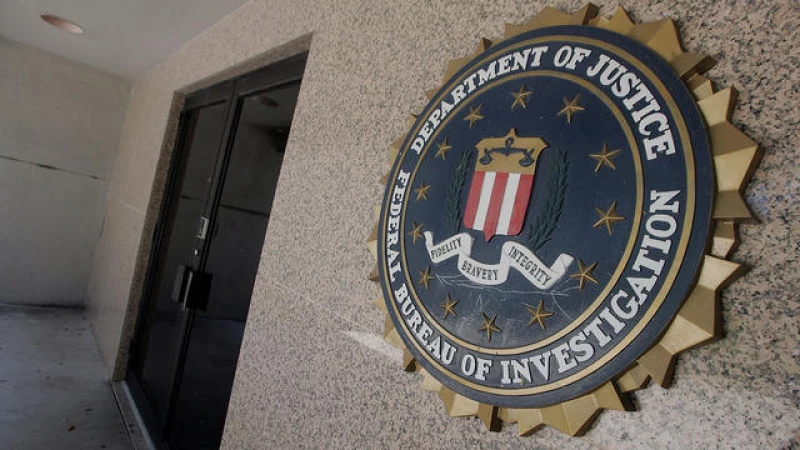President Biden on Saturday signed legislation reauthorizing a key U.S. surveillance law after divisions over whether the FBI should be restricted from using the program to search for Americans' data nearly forced the statute to lapse.
Barely missing its midnight deadline, the Senate had approved the bill by a 60-34 vote hours earlier with bipartisan support, extending for two years the program known as Section 702 of the Foreign Intelligence Surveillance Act. Mr. Biden thanked congressional leaders for their work.
"In the nick of time, we are reauthorizing FISA right before it expires at midnight," Senate Majority Leader Chuck Schumer said when voting on final passage began 15 minutes before the deadline. "All day long, we persisted and we persisted in trying to reach a breakthrough and in the end, we have succeeded."
What is Section 702 of FISA?
U.S. officials have said the surveillance tool, first authorized in 2008 and renewed several times since then, is crucial in disrupting terrorist attacks, cyber intrusions, and foreign espionage, and has also produced intelligence that the U.S. has relied on for specific operations, such as the 2022 killing of al-Qaida leader Ayman al-Zawahri.
"If you miss a key piece of intelligence, you may miss some event overseas or put troops in harm's way," Florida Sen. Marco Rubio, the top Republican on the Senate Intelligence Committee, said. "You may miss a plot to harm the country here, domestically, or somewhere else. So in this particular case, there's real-life implications."
Section 702 permits the U.S. government to collect, without a warrant, the communications of non-Americans located outside the country to gather foreign intelligence. The reauthorization faced a long and bumpy road to final passage Friday after months of clashes between privacy advocates and national security hawks pushed consideration of the legislation to the brink of expiration.
Though the spy program was technically set to expire at midnight, the Biden administration had said it expected its authority to collect intelligence to remain operational for at least another year, thanks to an opinion earlier this month from the Foreign Intelligence Surveillance Court, which receives surveillance applications.
Still, officials had said that court approval shouldn't be a substitute for congressional authorization, especially since communications companies could cease cooperation with the government if the program is allowed to lapse.
Hours before the law was set to expire, U.S. officials were already scrambling after two major U.S. communication providers said they would stop complying with orders through the surveillance program, according to a person familiar with the matter, who spoke on the condition of anonymity to discuss private negotiations.
Attorney General Merrick Garland Applauds Section 702 Reauthorization
In a recent statement, Attorney General Merrick Garland commended the reauthorization of Section 702, emphasizing its importance to the Justice Department.
Garland stated, "This reauthorization of Section 702 gives the U.S. the authority to continue to collect foreign intelligence information about non-U.S. persons located outside the United States, while at the same time codifying important reforms the Justice Department has adopted to ensure the protection of Americans' privacy and civil liberties."
Lawmakers Divided on Section 702 Renewal
Despite efforts by the Biden administration to push for the renewal of Section 702 and provide classified briefings to senators on its significance in national security, a faction of progressive and conservative lawmakers expressed reluctance to endorse the version of the bill passed by the House last week.
These lawmakers insisted that Senate Majority Leader Chuck Schumer allow votes on amendments aimed at addressing perceived civil liberty concerns in the legislation. Ultimately, a compromise was reached to allow critics to present their amendments for floor votes in exchange for expediting the passage process.
However, the six proposed amendments did not receive enough support during the floor voting and were not included in the final passage of the bill.
Detractors had proposed significant changes to the program, particularly focusing on limiting the FBI's access to information about Americans. While the surveillance tool is aimed at non-Americans in foreign countries, it also gathers data on Americans when they communicate with the targeted individuals. Senator Dick Durbin, the second-ranking Democrat in the Senate, had been advocating for a proposal that would mandate U.S. officials to obtain a warrant before accessing American communications.
"If the government wishes to monitor my private communications or those of any American, they should be obligated to seek approval from a judge, as our Founding Fathers envisioned when drafting the Constitution," Durbin stated.
Over the past year, U.S. officials have disclosed several instances of misconduct and errors by FBI analysts in inappropriately querying the intelligence database for information on Americans or individuals in the U.S., including a member of Congress and participants in the 2020 racial justice protests and the January 6, 2021, Capitol riot.
However, members of both the House and Senate intelligence committees, along with the Justice Department, cautioned that requiring a warrant would significantly impede officials from promptly addressing imminent national security threats.
"I believe that this is a risk we cannot afford to take given the wide range of challenges our nation is confronting globally," stated Senator Mark Warner, the Democratic chairman of the Senate Intelligence Committee.







